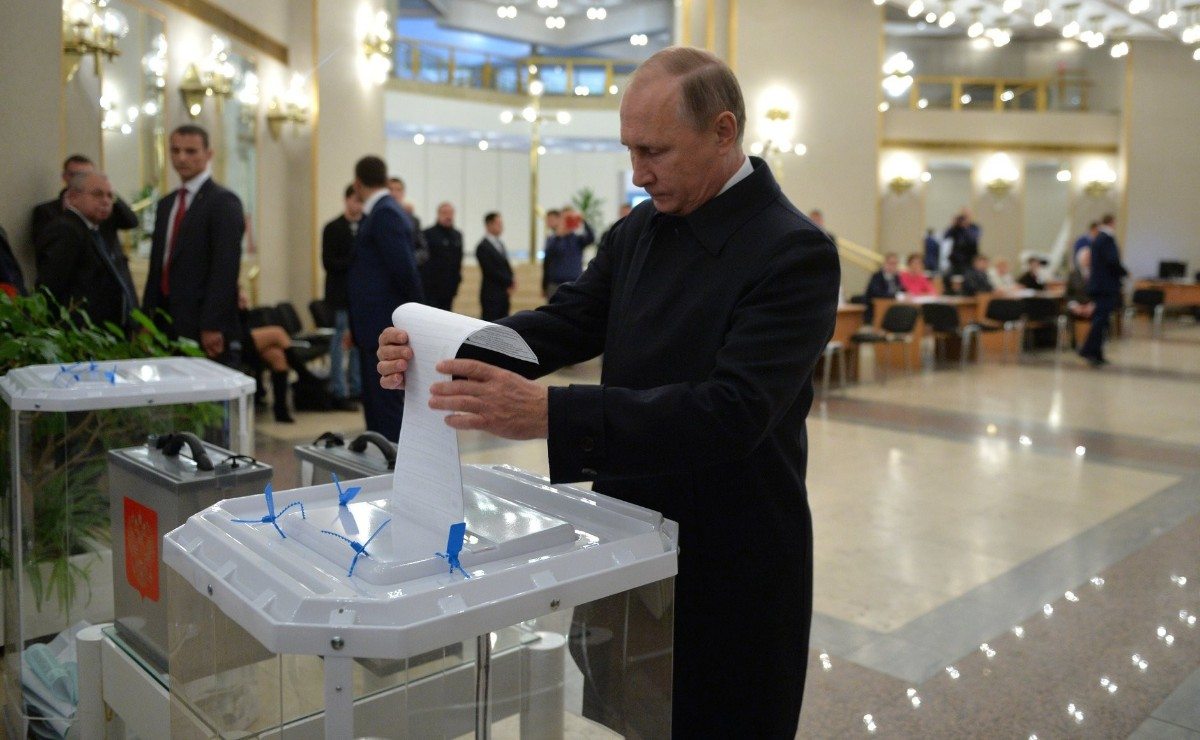 Photo courtesy of: Russian Presidential Executive Office
Photo courtesy of: Russian Presidential Executive Office
Six More Years of Putin: Results from the 2018 Russian Presidential Election
On Sunday, Russians voted in their seventh presidential election since the Soviet Union fell in 1991. Based on preliminary results, incumbent President Vladimir Putin unsurprisingly won in a landslide, receiving 76.67% of the vote. The official final results will be announced in 10 days, after all votes are counted by the Central Election Commission of Russia (CEC).
One of the largest concerns the Kremlin had this election was voter turnout; the goal was 70% voter turnout with 70% of people voting for Putin. Voter turnout has been decreasing since the first election in 1991, but increased yesterday by 2% from the 2012 election, or 1.2 million people. The head of the CEC, Ella Pamfilova, attributed the high turnout to the result of an information campaign and the elections being “as open as possible,” with foreign observers from the Organization for Security and Co-operation in Europe (OSCE) to monitor the election. (OSCE observers did not intervene in elections, but monitored electoral practices to produce a report with their findings of compliance with CEC and international standards.)
Putin’s strongest opponent, Alexei Navalny, called for his supporters to boycott the election as he was barred from running because of a fraud conviction. His boycott does not appear to have had any significant impact on the turnout or results of the election. Yet, until all ballots are tallied and the data is analyzed, it will be difficult to identify the effects, if any. Navalny has long been critical of the Kremlin and the unfairness of elections. Over the course of election day, he was active on Twitter, sharing his updated analyses of the election and videos showing ballot-box stuffing.
According to Radio Free Europe/Radio Liberty, there were thousands of reports of fraud, including ballot-box stuffing and “widespread pressure on citizens to vote.” News outlets have shared stories of people whose employers threatened to fire their employees if they did not bring proof of voting. These reports come just over two weeks since Putin gave his State of the Nation address where he said expanding freedom, strengthening democratic institutions, and increasing government transparency were essential for the development of Russia.
Putin presents these goals to Russians with little action to support them. Despite this, his approval ratings have been around 80% and people have been able to see changes and improvements to their lives under him. Many young voters cannot remember or have never known a life without Putin and it can be difficult to imagine one after him. For Russians, freedom is not necessarily their biggest concern, but rather continued developments in their quality of life and maintained security.
Popular among Russians, Putin’s rhetoric has shifted towards strength and defiance as Russia continues to perceive rising tensions with the West as threatening. There are disputes over whether Putin’s new term will hold a continuation of these positions and escalating confrontations with the West or a toning down because of gained confidence with the electoral win. It would be best for Russia under Putin to lessen its provocativeness and improve cooperation in order to maintain, or increase, its strength and influence. Policy under Putin is largely expected to stay the same as it has, as is the U.S.’ policy towards Russia after the recent elections in both countries. With growing aggressions from Russia, a tone may be set for the coming years that cooperation and collaboration between Russia and the West will continue to be difficult.





